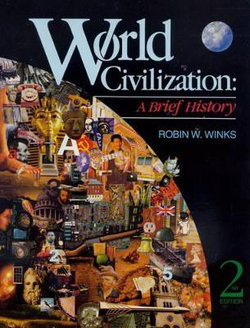This book can be read, straight through and in its entirety, as an interpretive statement about Western history written by a person who knew a good bit about non-Western history and who could thus throw into perspective the unusual, the commonplace, and the comparable in that sector of history conventionally labeled 'Western'. The text draws on over thirty-five years of discovering, in the classroom, what students themselves wish to ask about the past rather than what a body of scholars may have concluded they should wish to ask. Though this book is largely about Western civilization, it is also about world civilizations, for from the eighteenth century forward - and in many aspects of life, much earlier-the non-West has interacted with the West in such a way as to make it virtually impossible to separate one from the other when dealing at this level of generalization. As a teacher of the history of exploration and discovery, of imperialism and decolonization, Robin W.
Winks sought to keep the reader constantly aware that 'Western' history exists in a world context and that the societies of Asia, Africa, and the Pacific, as well of course as of Latin America , are parts of that history. Those who will use this book live, for the most part, in the 'West', and thus the context of study may appropriately be 'Western Civilization', but that study may never be permitted to be parochial or it will truly lack relevance. A Collegiate Press book



Share This Book: